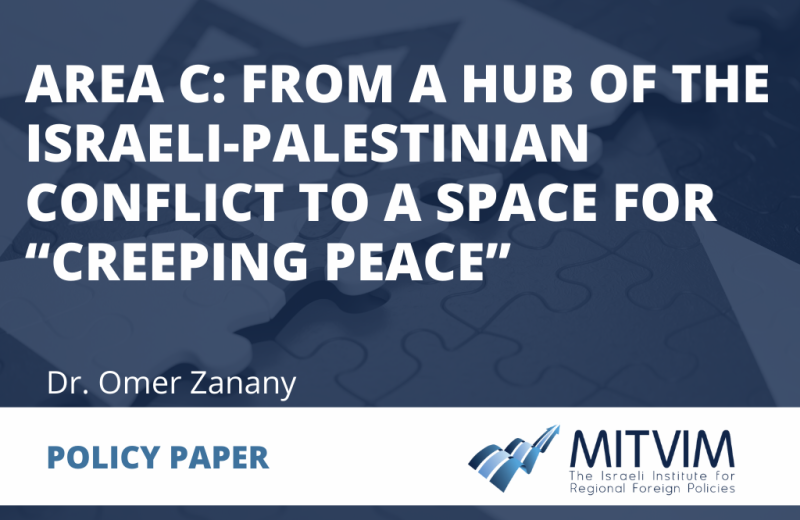 Policy papers and recommendations
/ The Israeli-Palestinian Peace Process
Policy papers and recommendations
/ The Israeli-Palestinian Peace Process
This paper was written as part of an initiative funded by the UK government, but its views do not necessarily represent the views of the UK government.
Area C of the Occupied Palestinian Territories is a key hub of the Israeli-Palestinian Conflict claimed by Israelis and Palestinians and left under temporary Israeli responsibility by the Interim Agreement (1995). For almost three decades, Israel has been reducing the Palestinian living space in the area and deepening its hold, managing all planning and building processes, expanding settlement areas and so-called “state lands” and demarcating “military zones” and “nature reserves” for itself. The collapse of the peace process also encouraged the Palestinian Authority (since 2009) to act unilaterally on the ground. While Israel has assumed a “piecemeal” approach and sees Area C as a vital space for settlement and security, the Palestinians have taken a “holistic” approach, viewing the area as a necessary space for a contiguous and sustainable state. The campaign currently being waged on the ground perpetuates friction and a bloody struggle over land and infrastructure, distances the chance of a stable Israeli-Palestinian agreement, prevents development and construction for Palestinians, poses a tangible danger to nature and the environment, and deepens humanitarian and legal challenges of population expulsion and relocation.
Turning this important area into a foundation for Israeli-Palestinian progress requires two types of policies – a reactive policy in the short term to prevent further deterioration, and a long-term policy of practical cooperation. In light of the new radical right-wing government’s policy advocating the de facto annexation of Area C to Israel, the pro-peace camp must take preventive measures: promote a campaign to “unmask” the government’s moves and intentions and expose the dangers of annexation as a fatal blow to Israel’s identity, security, and political and economic standing; expand demonstrations in conjunction with the overall protest against the new government’s anti-democratic policies; file objections to settlement construction and to harmful measures against the Palestinians. Down the line, Israel and the Palestinians must abandon their “zero sum game” approach and instead formulate joint systemic planning and promote positive steps in Area C: approve outline plans for Palestinian construction that were already submitted to Israel for approval, prevent crime and piracy, and promote joint projects with international and Arab assistance. These include solar power fields, agricultural and food cultivation areas, water and wastewater treatment facilities, and industrial zones. Advancing these measures without a political horizon will result, at most, in some specific improvement. On the other hand, advancing measures with a view to a political settlement – including the transfer of parts of Area C to the Palestinian Authority (PA) and the advancement of a comprehensive economic plan for the Palestinians – will lead to a real change, strengthen Palestinian ability and motivation to prevent terrorism, and make it possible to gradually advance the two-state vision based on the “Creeping Peace” strategy.


